SPEAKERS’ BIOS
H.E. Ms. Maira Mariela Macdonal Alvarez, Permanent Representative of the Plurinational State of Bolivia to the United Nations Office and other international organizations in Geneva and Vice-President of the Human Rights Council and Rapporteur. Chairperson and Moderator.
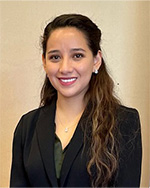 Ambassador Macdonal earned an Executive Master’s in International Negotiation at the Geneva Graduate Institute; a Bachelor’s Degree in Social Communication Sciences at the Higher University of San Andrés in La Paz, Bolivia. She has postgraduate studies on Human Rights at the XXI Century at the University of Zaragoza and the Latin American Center for Human Rights; Prevention of Violence Against Women, and Public Policies for the Living Well at the Plurinational Public Management School. Fluent in English.
Ambassador Macdonal earned an Executive Master’s in International Negotiation at the Geneva Graduate Institute; a Bachelor’s Degree in Social Communication Sciences at the Higher University of San Andrés in La Paz, Bolivia. She has postgraduate studies on Human Rights at the XXI Century at the University of Zaragoza and the Latin American Center for Human Rights; Prevention of Violence Against Women, and Public Policies for the Living Well at the Plurinational Public Management School. Fluent in English.
Prior to her appointment in Geneva, she had been appointed as Advisor in the Office of the Minister for Foreign Affairs of the Plurinational State of Bolivia. On 2019 served as Chief of Staff of the Ministry of Foreign Affairs. From 2018 to 2019 served as First Secretary; from 2016 to 2018 as Second Secretary and from 2014 to 2016 as Attaché at the Permanent Mission of Bolivia to the United Nations in New York. From 2012 to 2014 served as Responsible of press and communication, and as a Responsible of public relations at the Office of the Vice President of the Plurinactional State of Bolivia.
She was part of the Bolivian team for Security Council during its membership on 2017-2018, on charge of the files of Women Peace and Security, Colombia, Sudan, South Sudan, Abyei Region and the Lake Chad Basin. Prior this, she was responsible for files of the Third Committee of the UN General Assembly on Women Rights, Indigenous Issues, children and person with disabilities. She participated on negotiations on Landlock Developing Countries issues. She was also Election officer in the Permanent Mission of Bolivia in New York.
H.E. Mr. Federico Villegas, Ambassador and Permanent Representative of Argentina to the United Nations Office and other international organizations in Geneva.
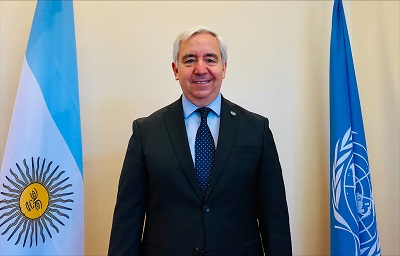 Ambassador Federico Villegas is a lawyer and career diplomat, and entered the foreign service of Argentina with honours in 1993.
Ambassador Federico Villegas is a lawyer and career diplomat, and entered the foreign service of Argentina with honours in 1993.
He was appointed Permanent Representative of Argentina to the United Nations Office and other international organizations in Geneva in March 2020, after being Ambassador of Argentina in Mozambique since 2016, where he opened the Embassy of Argentina.
In Argentina, at the Ministry of Foreign Affairs, he was first desk officer for disarmament, chemical weapons and international security issues (1993–1995) and then twice Director General of Human Rights (2005–2007 and 2012–2015).
He coordinated the project with the OHCHR to elaborate the first National Plan against Discrimination and the establishment of the Center for Public Policies on Human Rights of Mercosur and the International Center for Human Rights of UNESCO, both based in Argentina. He represented his country before the International Holocaust Remembrance Alliance (IHRA) and the Global Action Against Mass Atrocities Crimes (GAAMAC).
Abroad, previous to his posting in Mozambique, he was Alternate Representative to the Southern Common Market and the Latin American Integration Association in Uruguay (2008–2011), in charge of small and medium-sized businesses, social and political issues of the regional integration process and approval of regional structural cooperation projects. He was also Alternate Representative to the Organization of American States in Washington, D.C. (1995–2003), in charge of human rights, cooperation for development and civil society issues.
Mr. Villegas holds a Master of Arts in Liberal Studies, cum laude, from Georgetown University (1998), and was selected as United Nations Disarmament Fellow in 1994 and Young Leader of the Americas in 2004. He undertook intensive training on human rights at New College, University of Oxford (1999) and the International Institute of Human Rights in Strasbourg, France (2001).
Mr. Gustavo Gonzalez, UN Resident Coordinator in the Philippines.
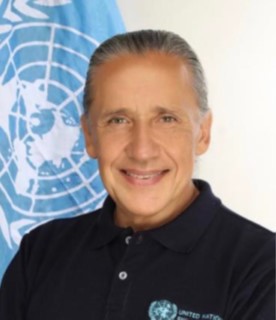 Mr. Gustavo González (Argentina) brings 30 years of international experience in humanitarian, peacebuilding and development affairs in countries in transition (war-peace; natural disasters-reconstruction; crisis-statebuilding), across four different geographical regions (Central America, Africa, Middle-East, Europe and South Asia). He led large scale operations in crisis and postcrisis settings and had direct participation in peace negotiations involving state and non-state actors. He had contributed to global best practices in the field of resource mobilization and partnership building. Presently, he is the UN Resident and Humanitarian Coordinator in the Philippines.
Mr. Gustavo González (Argentina) brings 30 years of international experience in humanitarian, peacebuilding and development affairs in countries in transition (war-peace; natural disasters-reconstruction; crisis-statebuilding), across four different geographical regions (Central America, Africa, Middle-East, Europe and South Asia). He led large scale operations in crisis and postcrisis settings and had direct participation in peace negotiations involving state and non-state actors. He had contributed to global best practices in the field of resource mobilization and partnership building. Presently, he is the UN Resident and Humanitarian Coordinator in the Philippines.
Prior to joining the Resident Coordinator System, he worked at the Food and Agriculture Organization (FAO) as Director of the Business Development and Resource Mobilization Division. He also held several senior positions at the United Nations Development Programme (UNDP), including Regional Development Coordinator for the Syria-related Crisis, covering operations in Egypt, Iraq, Lebanon, Jordan, Syria and Turkey; Senior Country Director in Yemen during the Arab Spring; Country Director in Burundi during the political transition; and Head of the Post-Conflict Unit in the Democratic Republic of Congo, in support of the adopted Global and Inclusive Agreement on the Transition.
Mr. González also worked on peacebuilding and reconstruction programmes for the International Organization for Migration (IOM) in Guinea-Bissau and the United Nations Office for Project Services (UNOPS) in the Central African Republic. While with the United Nations Department of Humanitarian Affairs, he held positions in Angola, Liberia and Mozambique.
Prior to joining the United Nations, Mr. González worked for the Organization of American States (OAS) in Nicaragua, within the framework of the Peace Accords for Central America.
He holds a master’s degree from the Said Business School at the University of Oxford in the United Kingdom, and a master’s degree in philosophy from the Universidad del Salvador in Argentina.
He is fluent in English, French, Portuguese and Spanish.
Ms. Roueida El Hage, Country Representative, Office of the High Commissioner for Human Rights Cambodia.
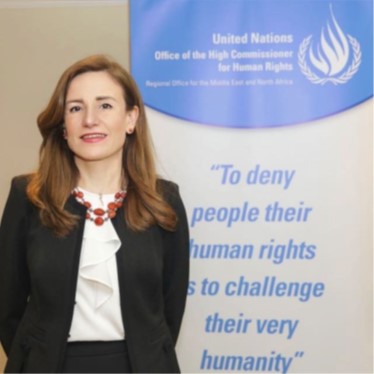 The Office of the High Commissioner for Human Rights (OHCHR) appointed Roueida El Hage as the new Representative in Cambodia as of 25 April 2022.
The Office of the High Commissioner for Human Rights (OHCHR) appointed Roueida El Hage as the new Representative in Cambodia as of 25 April 2022.
She comes with over 23 years of experience in human rights, including 18 years with OHCHR, and has extensive knowledge of international law and political affairs with the United Nations, in particular in conflict context in the Middle East and North Africa (MENA), Asia and Africa.
Ms. El Hage was deployed in Afghanistan, Central African Republic, Iraq, Libya, Yemen, the Philippines, and Lebanon.
Prior to this appointment, Ms. El Hage was the Regional Representative of the High Commissioner for Human Rights in the MENA region from October 2018 and April 2022. She served in previous functions as Coordinator of the Secretariat of the Group of Eminent Experts on Yemen, deputy Director of the Human Rights Component (UNAMI) in Iraq and Chief of the United Nations Assistance Mission for Iraq (UNAMI) Human Rights Regional Office in Northern Iraq, Acting Chief of MENA Section at OHCHR in Geneva, among other functions including with international and regional NGOs.
Ms. El Hage has a Master Degree in Law and Diplôme d'études approfondies (DEA) in Fine Arts. She is fluent in Arabic, English and French.
Ms. Alice Bahumi Mogwe, Director of DITSHWANELO – The Botswana Centre for Human Rights. She is also President of the International Federation for Human Rights (FIDH) – a position she has held since 2019.
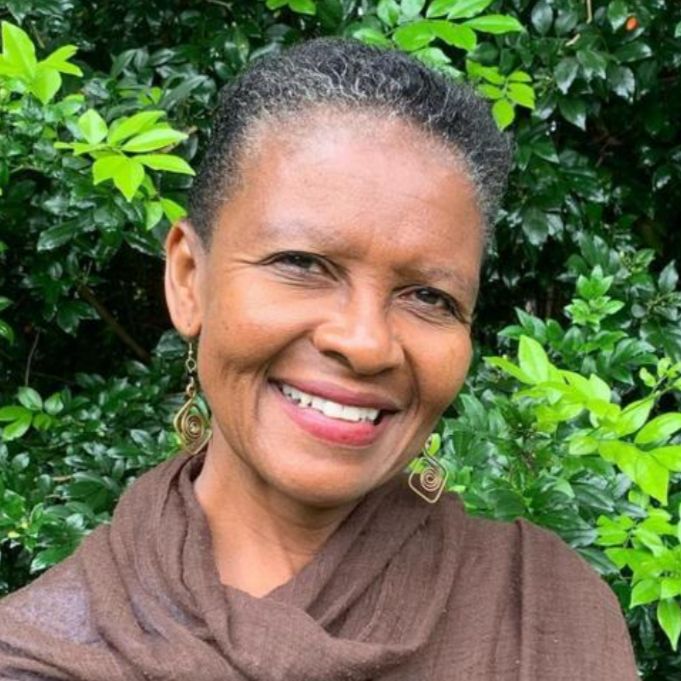 Alice Mogwe has been a human rights activist since the 1990s. Her background is in law, public policy, African studies, international relations, and mediation. Her work has included active engagement domestically, regionally, and internationally with civil society, governments, and regional and international human rights bodies. In 2005 she was awarded the Chevalier de l’Ordre National du Merite by the Government of the Republic of France; and in 2010 the David Rockefeller Bridging Leadership Award. In 2018, she was the first civil society representative to address the UN General Assembly on behalf of over 250 Human Rights Defenders globally. In 2021, she received the Friedrich Ebert Stiftung Human Rights Award 2021.
Alice Mogwe has been a human rights activist since the 1990s. Her background is in law, public policy, African studies, international relations, and mediation. Her work has included active engagement domestically, regionally, and internationally with civil society, governments, and regional and international human rights bodies. In 2005 she was awarded the Chevalier de l’Ordre National du Merite by the Government of the Republic of France; and in 2010 the David Rockefeller Bridging Leadership Award. In 2018, she was the first civil society representative to address the UN General Assembly on behalf of over 250 Human Rights Defenders globally. In 2021, she received the Friedrich Ebert Stiftung Human Rights Award 2021.
Her vision and leadership style are based on the values of dignity, equality, and justice – rooted in the African concept of botho/ubuntu. Alice promotes participatory dialogue in civil society organisations, inter-faith groups, and other institutions. Alice’s unwavering determination is manifested in her work with human rights defenders, including indigenous peoples, women, LGBTI+ communities; children; migrants and refugees; for the abolition of the death penalty; and demanding accountability from the corporate sector and the State.
She holds a degree in Law (LL.B) from the University of Cape Town, South Africa, and an (LL.M) from the University of Kent, United Kingdom, where she explored the connections between Law, Economy, and Society. She also holds a Post Graduate Diploma (PGDip) in Public Policy and African Studies from the University of Johannesburg, South Africa.
Mr. Carsten Staur, Chair of the OECD’s Development Assistance Committee (DAC) (remote participation).
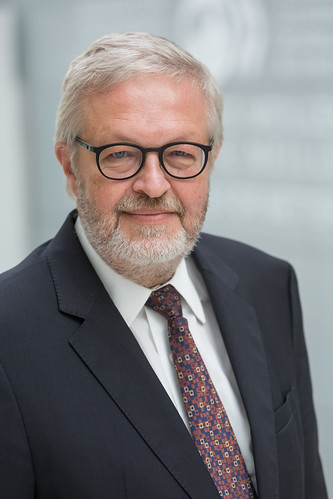 Prior to taking up functions as Chair of the OECD’s Development Assistance Committee in March 2023, Carsten Staur was Denmark’s Ambassador to the OECD and UNESCO in Paris (2018-23). During a career of more than forty years in international diplomacy and development, Ambassador Staur has served as Permanent Representative of Denmark to the United Nations in Geneva (2013-18) and New York (2007-13) and as State Secretary for International Development Cooperation (2001-2007). He has also been Director for Development Policy and Planning in the Ministry of Foreign Affairs, Ambassador of Denmark to Israel, Under Secretary for Administrative Affairs, and Under Secretary for Bilateral Development Cooperation.
Prior to taking up functions as Chair of the OECD’s Development Assistance Committee in March 2023, Carsten Staur was Denmark’s Ambassador to the OECD and UNESCO in Paris (2018-23). During a career of more than forty years in international diplomacy and development, Ambassador Staur has served as Permanent Representative of Denmark to the United Nations in Geneva (2013-18) and New York (2007-13) and as State Secretary for International Development Cooperation (2001-2007). He has also been Director for Development Policy and Planning in the Ministry of Foreign Affairs, Ambassador of Denmark to Israel, Under Secretary for Administrative Affairs, and Under Secretary for Bilateral Development Cooperation.
Carsten Staur has co-facilitated negotiations on the outcome of the UN Summit on the Millennium Development Goals in 2010 as well as of the UN High-Level Meeting on the Rule of Law in 2012. In 2014, he initiated the Convention against Torture Initiative (CTI), together with representatives of Chile, Morocco, and Indonesia, pursuing universal ratification of the UN Convention Against Torture. He has also chaired the Boards of UNDP, UNFPA and UNOPS; the drafting Committee of the 32nd International Red Cross and Red Crescent Conference; and the Executive Committee of the UN High Commissioner’s Programme (UNHCR). He has twice served as member of the Board of the Global Fund to Fight AIDS, Tuberculosis and Malaria (GFATM), representing also Norway, Sweden, the Netherlands, Ireland and Luxembourg. In 2020-21, he chaired the OECD Executive Committee.
Ambassador Staur holds a degree in History and Literature from the University of Copenhagen and has written extensively about globalisation, multilateral affairs and the United Nations, as well as about Danish foreign and development policy.
